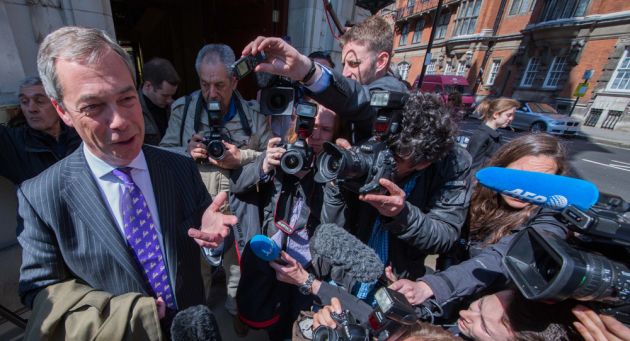A word of caution about voting UKIP at the next EU elections

There are a number of reasons why a protest vote for UKIP would not be in the interest of the common good both for the UK and for our international aid pledge.
It is quite right that Christians that are against gay marriage should vote against both the Conservative and Liberal Democrat party. It is also right that a vote for UKIP should be understood to be a protest at the current status quo in the thinking of those leading both parties that form the Government.
Already political observers are looking forward and analysing what the results from the local elections might mean for the main parties during the next years in UK politics. Two observations should stand out to UK Christians.
The first is how the UK will fair at the EU Parliament. The second is whether the Conservative party will falter on its pledge to give away 0.7% of national income to foreign aid. Let me deal with the second issue first.
The Conservative party pledged to give 0.7% of GDP to international aid. It was a part of their manifesto at the last election. The figure is one of the highest in comparison with other countries and is something that Christians who voted conservative should be proud of. It is also a commitment that could be jeopardised by a growth in popularity for UKIP.
If the Conservative party will lean to the right and cut the international aid budget because of growing support for UKIP then those Christians who voted against the Conservatives need to weigh in their own minds the cost that opposing gay marriage might have on people in developed countries who will suffer the consequences of a possible budget cut to a programme on which they rely for health and subsistence.
Of course there are different political theologies that could justify a different form of helping one's neighbour, but only a fairly sophisticated theologian, and a fairly unrealistic one would try and disagree that higher levels of giving from one country to another should be stopped in favour of opposing gay marriage. We might feel differently in our gut.
However we must then ask the question about what our primary witness should be? As with most things, we cannot have everything. If a vote for the Conservatives at the next significant elections, which are the EU elections, means supporting the 0.7% giving rate even if gay marriage is legalised, real thought and prayer needs to go into that vote.
Secondly a vote for UKIP locally should not necessarily translate into a vote against the Conservatives at the EU level. I say this as somebody who has worked at the European Parliament. While it is true that there are real reasons UK voters would want to oppose further European integration, a vote for UKIP at the next elections will weaken the role of the Conservative party at the EU level. Being in a coalition with the Liberal Democrats, ironically conservative values will be weakened even more if they lose more power in the EU parliament.
If it is true that more than half of legislation is now formed at the EU level, Christians should be concerned about what sort of people, and the political clout these people have at the European Parliament. It matters because the Parliament is the only place where regular people like you and I can directly give our opinion to somebody who represents us.
The European Commission is accountable to the European Parliament and the European Council, which is made up of Ministers from members of the nation states. Here Ministers can deal with each other, without proper transparency and accountability to their electorate. Which means that the EU Parliament is the only place where we the voters can have our say directly to our representatives.
The European Parliament is a wholly different composition to Westminster. It is made up of fractions and fractions of political interests that span political ideology and the interests of nation states as diverse as the countries that are represented at the EU level. This means that for the interests of UK citizens to be heard a stronger UK political presence rather than a weakened fractured one is needed. Unless the UK steps out of the union altogether, UK unity, preferably in the interest of Christian values, requires stronger unity in political currency. Fracturing the unity of MEPs in the next elections by voting for UKIP is not in the best interest of those that would like to see the UK continue to hold a strong voice at the EU level.
A vote for UKIP at the EU level could jeopardise the size of the UK aid budget and could weaken our voice at the EU level. Please keep this in mind in 2014.











